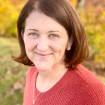You are here
Community is…
“Where I fit in and feel safe.”
“A supportive family and bond that cannot be broken.”
“Home.”
Neighbors and friends offered these personal reflections on the meaning of community at the 2022 Health Fair hosted by the Center for Black Women’s Wellness (CBWW). Their words, written on brightly colored post-it notes, reflected a shared sense of solidarity and strength among the nearly 300 people attending the November event at the Dunbar Recreation Center in the heart of Atlanta.
For over three decades, CBWW has been a tireless advocate for Black women and their families in the metropolitan Atlanta area. They offer affordable health care and other services to support the physical, mental, emotional and financial health needs of the women they serve.
During the COVID-19 pandemic, this unwavering support became a kind of lifeline of connection for many families.
“As African American women and men faced job loss, fear, stress, isolation and despair, CBWW remained essential, offering support, resources and hope. Events like these are important to uplift those families impacted by the pandemic,” said Jemea Dorsey, CEO of the Center for Black Women’s Wellness.
For the November 2022 health fair, CBWW brought together partners from around the city to provide a variety of health services, including free health screenings, breast exams and mammogram appointments, along with eco-friendly health products, nutrition information and groceries for expecting mothers. With support from the CDC Foundation, CBWW also provided COVID-19 test kits and free onsite COVID-19 vaccinations and boosters as part of their Project Cares initiative to increase vaccine access in the community.
The health fair provided free COVID-19 vaccines.
Young attendees post their reflections on the meaning of community.
CBWW is one of 114 community-based organizations funded by the CDC Foundation to develop locally-focused vaccine education and outreach. Over the past two years, CBWW has provided hundreds of free COVID-19 and flu vaccinations through their wellness clinic and mobile vaccine events. They’ve also worked to address vaccine misinformation and answer questions from the community.
Catherine Zilber, MSc, vice president for infectious disease programs at the CDC Foundation, and Nma Ohiaeri, MPH, CHES, public health analyst for the National Center for Immunization and Respiratory Diseases at the Centers for Disease Control and Prevention (CDC), attended the recent CBWW health fair to offer their support and to witness the power of community care in action.
“There was a great welcoming atmosphere at the event. It was inspiring to see how CBWW brings people together and helps provide so many different and valuable health services, including vaccinations,” Zilber said. “While the federal public health emergency for COVID-19 is set to expire this May, COVID-19 and flu vaccines will remain a critical part of how we take care of ourselves and our families.”
Two women look over materials provided at the health fair.
Nma Ohiaeri, MPH, CHES (left); Catherine Zilber, MSc. (center); Jemea Dorsey (right)
A woman hands out groceries.
Noelle Mobley, MPH, the program director for CBWW’s Project Cares, has seen an increase in the number of people who want to get vaccinated. She’s also noticed more people looking for information on how to take care of themselves if they do get COVID-19.
“We’ve had thirty people jumping on one of our education session calls—engaging in conversations, asking questions and giving each other advice and support,” Mobley said. “At the end of the day, that’s what we want, to educate and inform people so they can make their own decisions.”
The Atlanta families who attended the November health fair came up with many different definitions of community, but one thing remains certain—at the heart of this community is the Center for Black Women’s Wellness.
Photo Credit: Caroline Joe for the CDC Foundation
This project is supported by the Centers for Disease Control and Prevention of the U.S. Department of Health and Human Services (HHS) as part of a financial assistance award totaling $22,724,994 with 100 percent funded by CDC/HHS. The contents are those of the author(s) and do not necessarily represent the official views of, nor an endorsement by, CDC/HHS or the U.S. Government.
